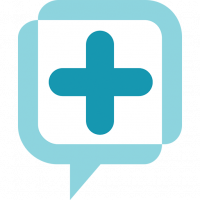According to the National Plan for Health Literacy, 9 of 10 English-speaking adults in the U.S. have less than proficient health literacy skills. This is an issue that affects everyone. Without clear information and an understanding of self-management of conditions, people are more likely to skip necessary medical tests. Consequently, they also end up in emergency rooms more often, and they have a hard time managing chronic diseases, such as diabetes and high blood pressure.
Health literacy is complex
Health literacy requires knowledge from many topic areas, including the body, healthy behaviors, and the workings of the health system. This is influenced by many factors: the language we speak; our ability to communicate clearly and listen carefully; and our age, socioeconomic status, cultural background, past experiences, cognitive abilities, and mental health. Each of these factors affects how we communicate, understand, and respond to health information. For example, it can be difficult for anyone, no matter their literacy skills, to remember instructions or read a medication label when feeling sick.
Key health literacy research findings
The National Institutes of Health (NIH) in their research on Clear Communication list these key points:
- Everyone, no matter how educated, is at risk of misunderstanding health information if the topic is emotionally charged or complex.
- In almost all cases, physicians and other health professionals believe they are communicating accurate information.
- In some cases, patients may believe they have understood directions but may be embarrassed to ask questions to confirm their understanding.
- It is increasingly difficult for people to separate evidence-based information, especially online, from misleading ads and gimmicks.
- The communication of “risk” in an effective and fair way continues to be a challenge for both the provider and the patient.
The Clear Communication report goes on to say that health care organizations and their systems and procedures have a significant role to play in ensuring understanding in the health care setting.
Resources to improve health communication
Fortunately, there are simple principles that the NIH recommends following for clear communication to patients and the public:
- Use the principles of Plain Language communication:
- Organizing information so that the most important points come first;
- Breaking complex information into understandable chunks;
- Using simple language and defining technical terms; and
- Using the active voice.
- The National Cancer Institute (NCI) Clear & Simple outlines a process for developing publications for people with limited-literacy skills and features proven principles and a discussion of real life issues that individuals face in developing materials for low-literacy individuals.
- Cultural Respect from the NIH is a strategy that enables organizations to work effectively in cross-cultural situations. Developing and implementing a framework of cultural competence in health systems is an extended process that ultimately serves to reduce health disparities and improve access to high-quality health care.
What can a health care marketer do?
Use the principles above to provide clear messages to the patient and the public.
In addition, using a Medicom Health HRA can help a health-information seeker. These assessments are educational tools that give personal advice in language everyone can understand. The simple assessment questions and plain language reports teach patients concepts and terms they can use to talk to their doctors.
Health information conveyed in clear and simple terms can help patients improve their health, thereby lowering health care costs and reducing strains on health care systems.















 Thank you for your interest.
Thank you for your interest.